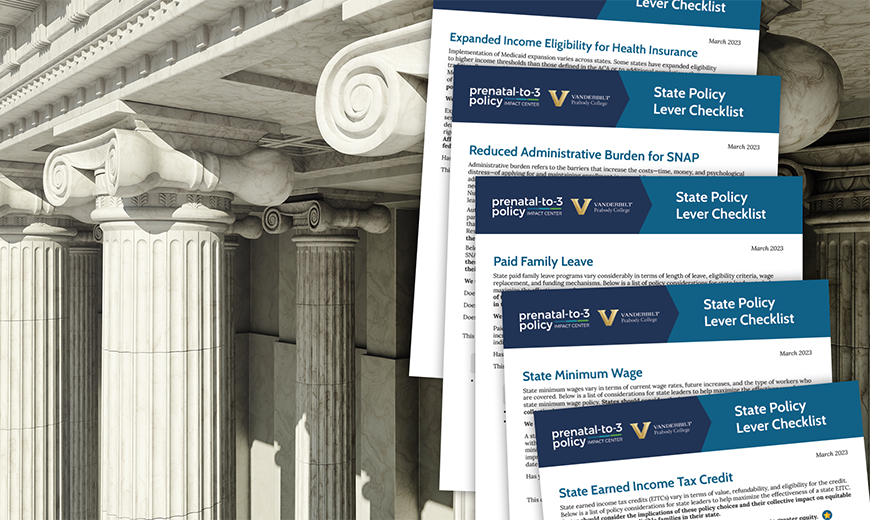- Home
- /
- Research Topics
- /
- Administrative Burden
Administrative Burden
Administrative barriers that increase the costs of applying for and maintaining enrollment in public assistance programs discourage participation among eligible families and can impact child development. Costs may include time, money, and psychological distress. By reducing administrative burdens, states can help families access support that promotes positive outcomes for young children.
Featured Resource
Check out this blog post to learn what administrative burdens are, what impact they have on families and states, and what reducing administrative burden means for families.
Related Resources
- News
- |
In a newly published essay, Prenatal-to-3 Policy Impact Center Executive Director Dr. Cynthia Osborne outlines the five stages of public policy implementation—and the research critical for each stage. The essay draws from a rich history
- Blog
- |
State lawmakers face difficult choices about how to use scarce public resources. To ensure that investments have a big impact on young children, lawmakers often want to know—which policies actually work? The Prenatal-to-3 Policy Impact
- Blog
- |
State legislators are off to the races! Nearly three quarters of states have gaveled in for the 2024 session, and several more will convene later this month. This post marks the starting line for our
Reducing the administrative burden for the Supplemental Nutrition Assistance Program (SNAP) increases participation rates among eligible households, increasing household food security. This State Policy Lever Checklist contains a list of policy considerations for state leaders
- Blog
- |
By Jacque Whearty, Policy Manager Imagine that you just found out you may qualify for the Supplemental Nutrition Assistance Program (SNAP), which will help you feed your two children. But first, you need to fill
- Blog
- |
Opportunity begins before we are born. Beginning prenatally, certain children will face substantial obstacles to healthy development, whereas others will thrive from the start. Opportunity follows state policy choices. Where a baby lives makes a







